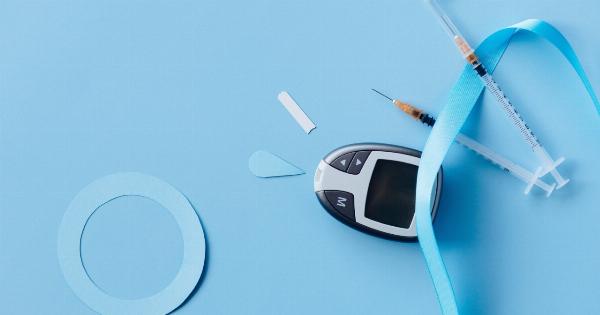High blood pressure and high cholesterol levels are common health concerns that can have serious consequences if left unchecked.
Fortunately, there are medications available that can help control these conditions, reducing the risk of heart disease, stroke, and other associated complications.
1. Understanding Blood Pressure
Blood pressure is the force exerted by blood against the walls of arteries as it flows through them. It is measured using two numbers: systolic pressure (the higher number) and diastolic pressure (the lower number).
Normal blood pressure is around 120/80 mmHg.
2. The Importance of Controlling Blood Pressure
When blood pressure is consistently high, it can damage blood vessels and organs such as the heart, brain, and kidneys. This increases the risk of heart disease, stroke, kidney disease, and other health problems.
3. Medications for Blood Pressure Control
There are several types of medications available to help control high blood pressure:.
- Diuretics: Also known as “water pills,” diuretics help the body get rid of excess salt and water, reducing the volume of blood in the vessels and lowering blood pressure.
- Beta-blockers: These medications reduce the heart rate and the force of the heart’s contractions, thereby lowering blood pressure.
- Angiotensin-converting enzyme (ACE) inhibitors: ACE inhibitors help relax blood vessels, allowing blood to flow more easily and lowering blood pressure.
- Calcium channel blockers: Calcium channel blockers relax and widen blood vessels, making it easier for blood to flow and reducing blood pressure.
- Angiotensin II receptor blockers (ARBs): ARBs block the actions of angiotensin II, a hormone that narrows blood vessels and increases blood pressure.
4. Understanding Cholesterol
Cholesterol is a waxy, fat-like substance found in the body and certain foods. It is essential for the formation of cell membranes, vitamin D, and some hormones.
However, high levels of cholesterol in the blood can lead to the formation of plaque in the arteries, increasing the risk of heart disease and stroke.
5. The Importance of Controlling Cholesterol Levels
High cholesterol levels can contribute to the development of atherosclerosis, a condition where plaque builds up in the arteries, restricting blood flow. This can lead to serious cardiovascular events such as heart attacks and strokes.
6. Medications for Cholesterol Control
There are several types of medications available to help control cholesterol levels:.
- Statins: Statins are the most commonly prescribed medications for high cholesterol. They work by blocking an enzyme in the liver that produces cholesterol, thereby reducing cholesterol production.
- Bile acid sequestrants: These medications bind to bile acids in the intestines, preventing them from being reabsorbed into the bloodstream. This prompts the liver to use more cholesterol to produce additional bile acids, leading to a decrease in cholesterol levels.
- Ezetimibe: Ezetimibe works by reducing the absorption of cholesterol in the small intestine.
- PCSK9 inhibitors: These newer medications help lower cholesterol levels by blocking a protein that reduces the liver’s ability to remove LDL cholesterol from the blood.
7. Combining Medications for Blood Pressure and Cholesterol Control
It is not uncommon for individuals to have both high blood pressure and high cholesterol. In such cases, doctors may prescribe a combination of medications to effectively control both conditions.
This can help reduce the overall risk of cardiovascular disease and its complications.
8. Monitoring and Adherence to Medication
Regular monitoring of blood pressure and cholesterol levels is crucial to ensure medication effectiveness and make any necessary adjustments.
It is important to follow the prescribed medication regimen and consult with a healthcare professional if there are any concerns or side effects.
9. Lifestyle Changes for Blood Pressure and Cholesterol Control
While medications play a vital role in managing blood pressure and cholesterol, they should be complemented by healthy lifestyle choices.
These include adopting a balanced diet low in saturated and trans fats, engaging in regular physical activity, maintaining a healthy weight, avoiding smoking and excessive alcohol consumption, and managing stress effectively.
10. Conclusion
Controlling blood pressure and cholesterol levels is essential for maintaining good cardiovascular health.
Medications prescribed by healthcare professionals, combined with lifestyle modifications, can significantly reduce the risk of heart disease, stroke, and other complications associated with these conditions. It is important to consult with a healthcare professional to determine the most suitable medication regimen for individual needs.



























